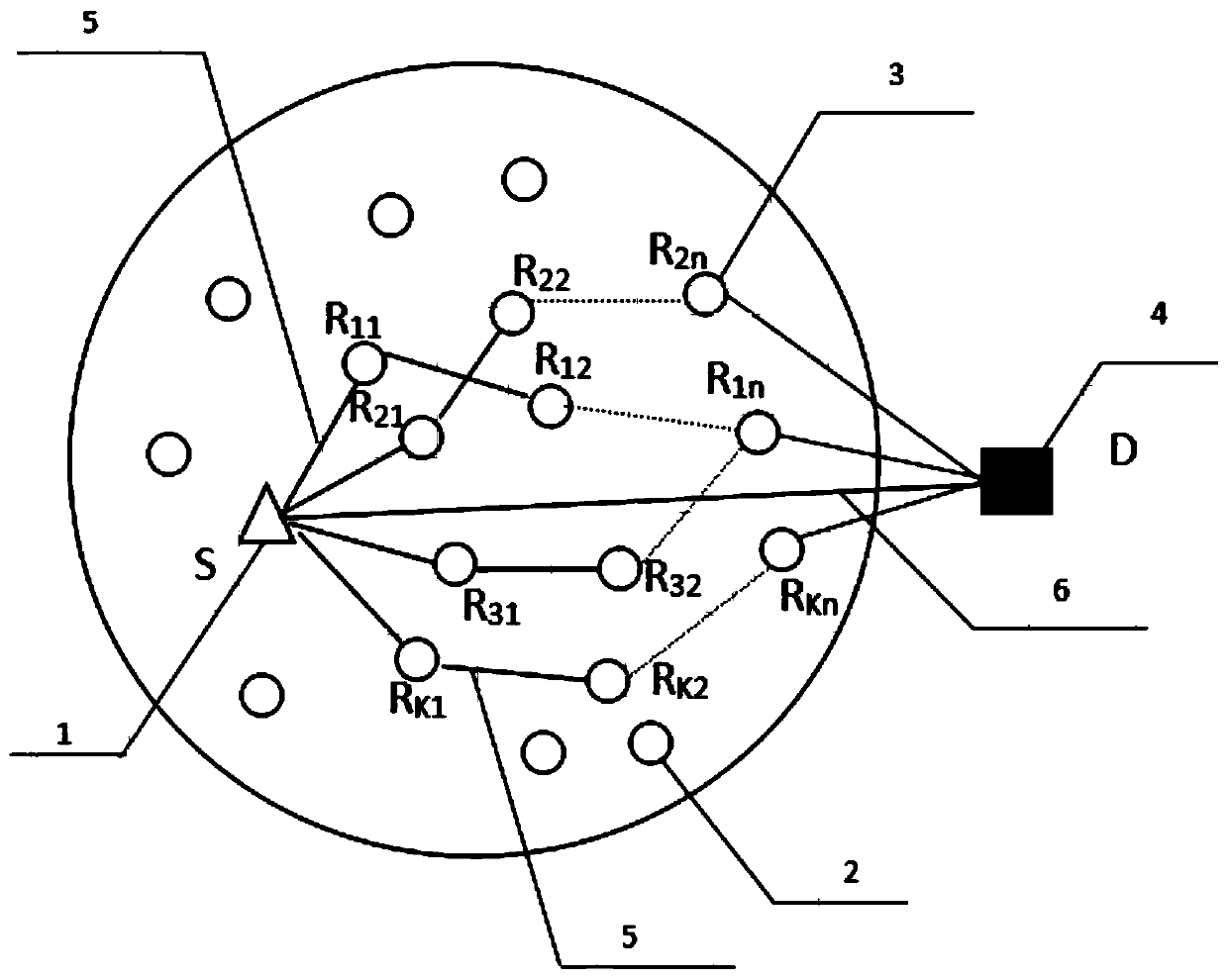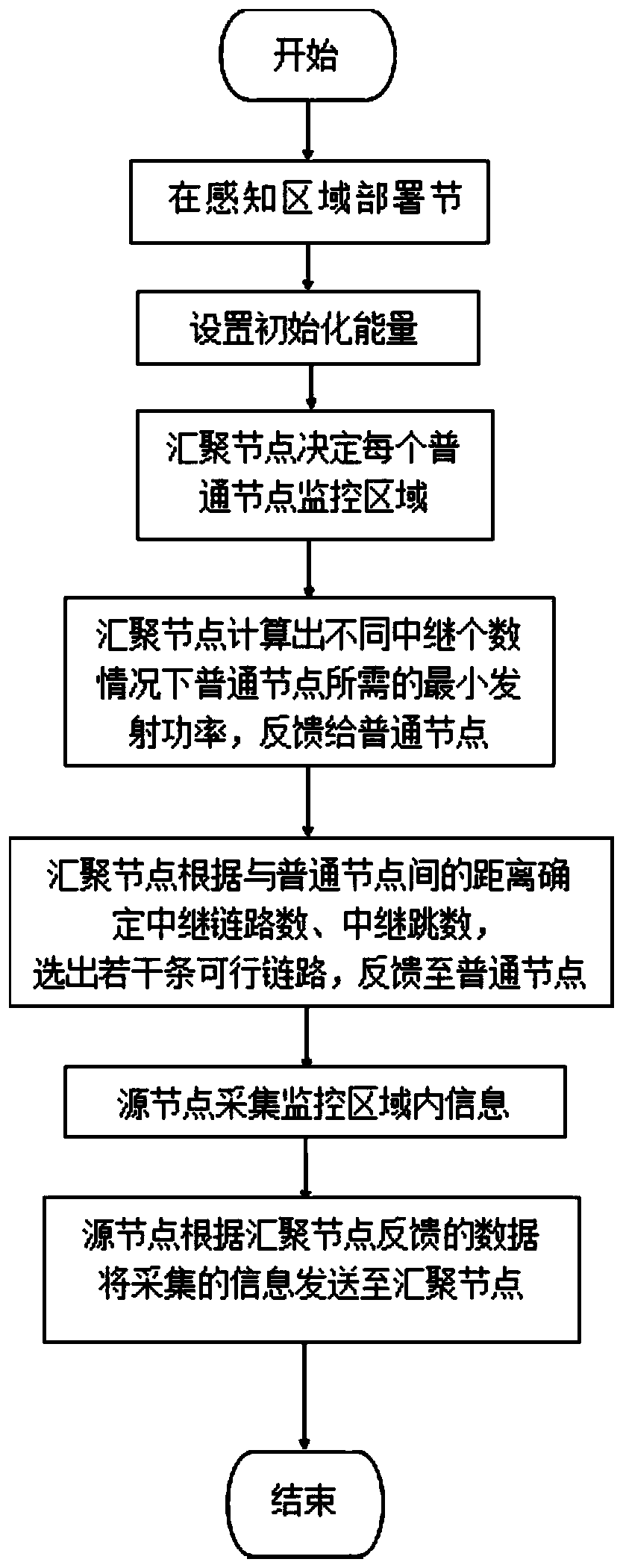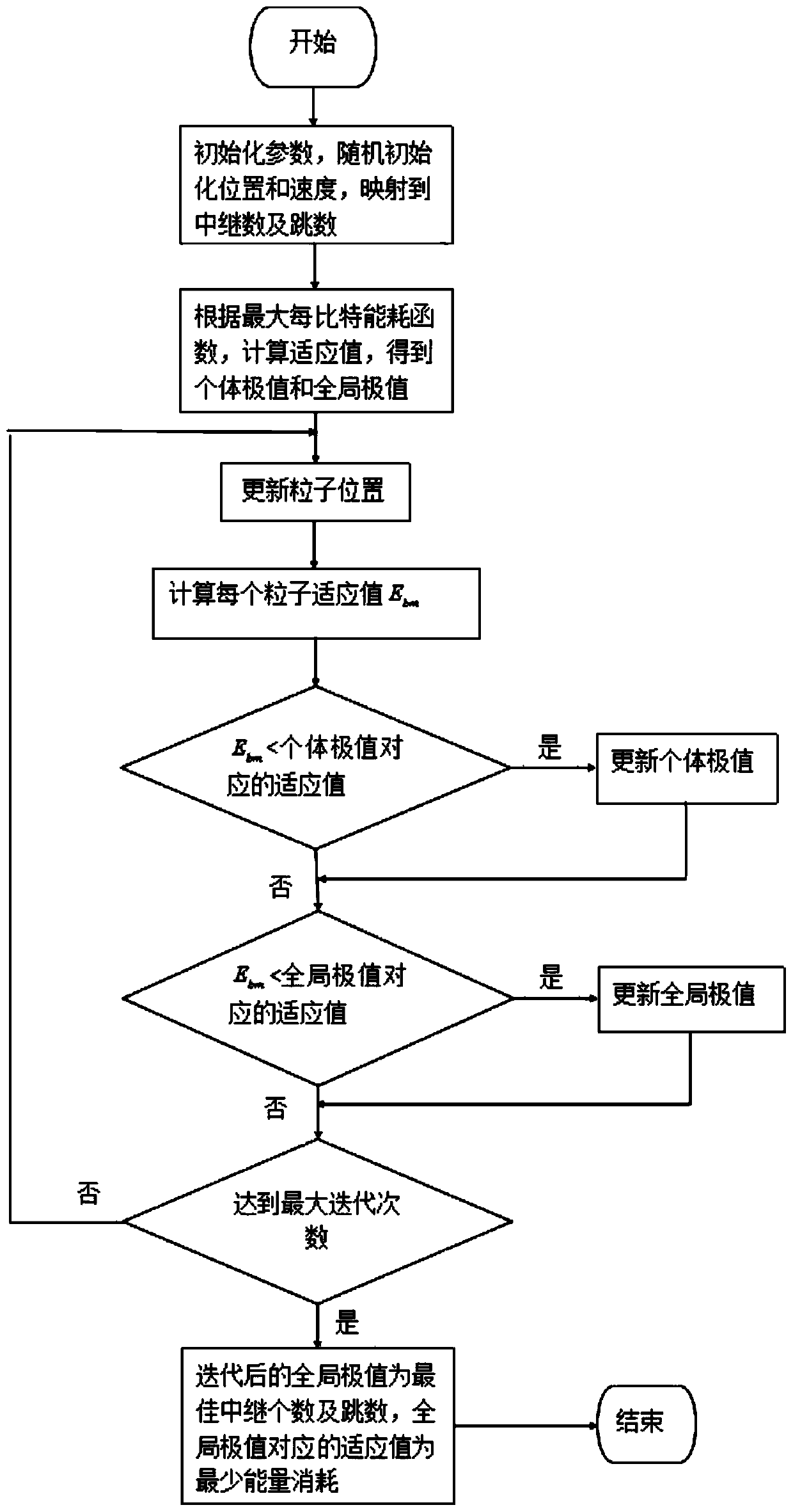Cooperative transmission routing method for wireless sensor networks based on multi-relay and multi-hop
A wireless sensor and network collaboration technology, applied in wireless communication, advanced technology, climate sustainability, etc., can solve problems such as unsatisfactory energy saving effects, and achieve the effect of alleviating energy and avoiding waste of resources
- Summary
- Abstract
- Description
- Claims
- Application Information
AI Technical Summary
Problems solved by technology
Method used
Image
Examples
specific Embodiment approach
[0052] The present invention proposes a multi-relay and multi-hop cooperative transmission scheme that minimizes transmission power and optimizes the number of relay links and the number of relay hops on each link. The basis of the criteria can effectively calculate the minimum transmission power that meets the transmission stability in the entire network, and ensure that the number of relay links and hops that minimize energy consumption can be found under different transmission distances, effectively alleviating excessive energy consumption The problem. Its specific implementation is as follows:
[0053] The present invention is applicable to a large-scale wireless sensor network, the network includes a plurality of common nodes and a converging node; the relay node is generated from the common nodes; the function of any common node is to complete data collection and forward the data to the selected relay The node transmits data to the sink node through the relay node.
[...
PUM
 Login to View More
Login to View More Abstract
Description
Claims
Application Information
 Login to View More
Login to View More - R&D
- Intellectual Property
- Life Sciences
- Materials
- Tech Scout
- Unparalleled Data Quality
- Higher Quality Content
- 60% Fewer Hallucinations
Browse by: Latest US Patents, China's latest patents, Technical Efficacy Thesaurus, Application Domain, Technology Topic, Popular Technical Reports.
© 2025 PatSnap. All rights reserved.Legal|Privacy policy|Modern Slavery Act Transparency Statement|Sitemap|About US| Contact US: help@patsnap.com



